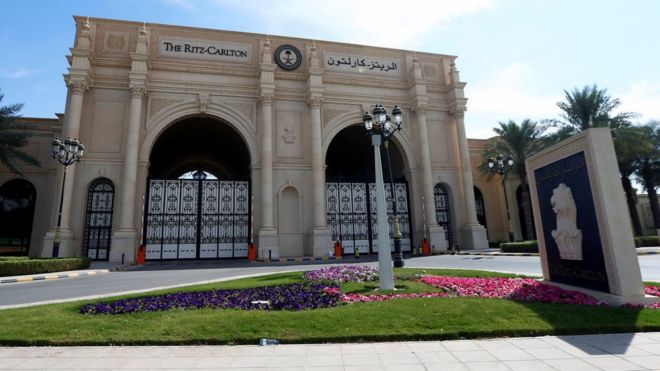- Joined
- Dec 6, 2010
- Messages
- 33,632
- Reaction score
- 6,044
Prince Mohammed bin Salman Aims to Rebrand Saudi Arabia
by F. Brinley Bruton | Nov 6 2017
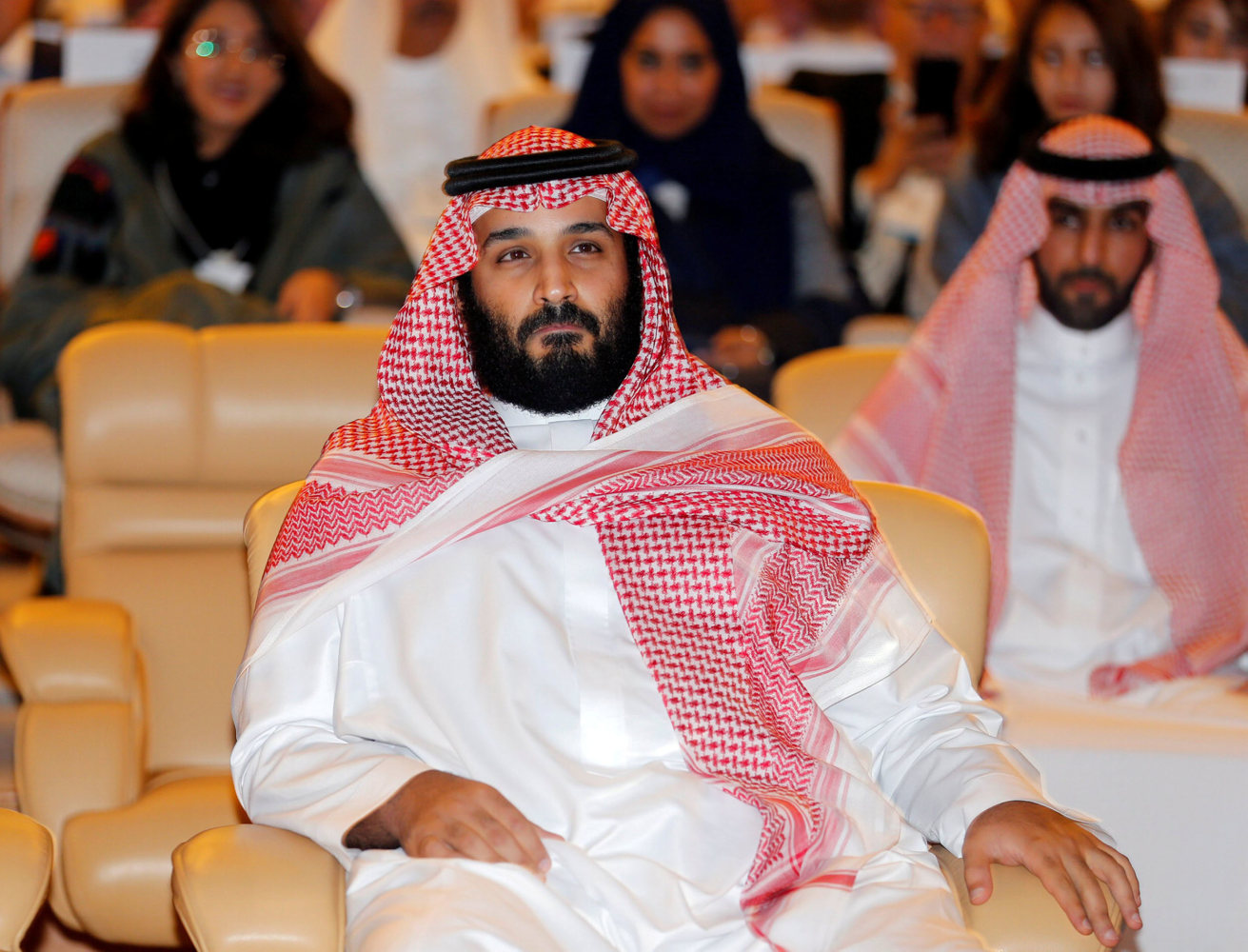
Saudi Crown Prince Mohammed bin Salman
by F. Brinley Bruton | Nov 6 2017

Saudi Crown Prince Mohammed bin Salman
RIYADH, Saudi Arabia — The declaration reverberated around the world — the power behind the Saudi throne pledged to destroy extremism and return the kingdom to “moderate Islam.”
Crown Prince Mohammed bin Salman's speech last month was part of a sweeping rebrand of a country that for years has exported a severe form of Islam and produced most of the 9/11 attackers as well as al Qaeda leader Osama bin Laden.
Driven by the young prince, the reforms are aimed at transforming the way the world sees Saudi Arabia, wean it off of oil and remake the hermetic Gulf kingdom into a hub of international business, finance and technology.
The son of the country's 81-year-old king has embarked on a high wire act to consolidate his power, upending a tradition among the ruling family to keep disagreements private, and enthuse and employ much of Saudi Arabia’s population — 70 percent of whom are under the age of 30.
Over the weekend, an anticorruption body run by Salman detained 11 top princes, four ministers and dozens of former ministers — sending shock waves across the kingdom.
And while Salman, 32, is trying to reshape the way the world sees his country, Saudi Arabia continues to face questions over the treatment of its own people, with dozens of human rights defenders in prison for pushing for reform.
'Too much destruction'
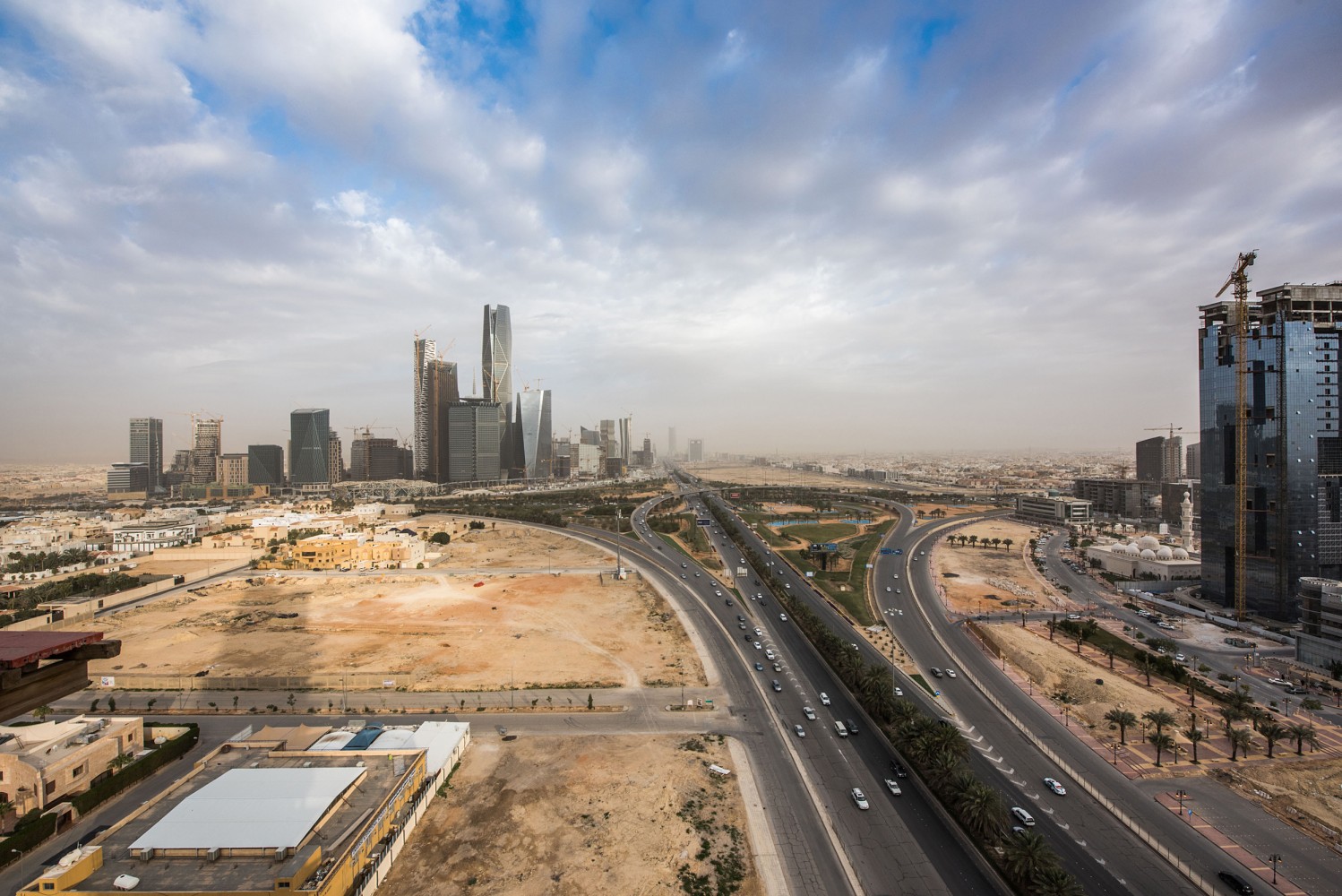
Riyadh's King Abdullah financial district sits on the horizon
Salman's bet is that reducing Saudi dependence on oil and transforming the economy will fulfill the needs and desires of his young population, outweighing the views of a powerful clerical class long wary of modernization.
And he doesn't have a lot of time — the absolute monarchy urgently needs to create jobs and forestall the sorts of complaints that fed the 2011 Arab Spring uprisings throughout the region.
Ghadi Al Harbi from Medina, home of one of the most important pilgrimage sites in Islam, is one of the young people that Salman needs on his side. And she knows where she stands on the issue of radicalization — the government must crack down.
“We’ve suffered so much and so many innocent people have died for no reason,” said the 19-year-old English student, referring to religious divisions within Saudi society brought on by differing interpretations of Islam.
She said she had seen the effects of extremism firsthand, and knew people who had killed family members they branded infidels.
“If this ideology persists, there will be too much destruction,” Al Harbi said.
An older brother Anwar Al Harbi, 34, sat close by, and he agreed that the government was heading in the right direction in allowing women to drive and opening the economy to the world.
Salman was “talking the talk, walking the walk,” said Anwar Al Harbi, who works with the government's nationwide traffic control system.
He also liked what he heard about the country’s economic plans, particularly a project to build a $500 billion, 10,000-square-mile futuristic business and tech zone dubbed NEOM.
But Saudis are nervous about their futures, too, Anwar Al Harbi added.
“One thing they should be focusing on is the economic element of change. People are scared of the implications when it comes to what is after energy," he said, referring to the country's dependence on oil.
With that, the two Al Harbis touched on the huge risks and opportunities inherent in Salman's sweeping plans to transform the Middle East’s largest economy, and one of the world’s most conservative and insular societies.
Social change

Saudi Crown Prince Mohammed bin Salman, right, meets with British businessman Richard Branson on Oct. 26.
Salman’s comments on Islam came during a rare public foray at a high-level business and finance conference in Riyadh, underlining the fact that widespread economic changes are going hand-in-hand with sweeping social ones.
"We are returning to what we were before — a country of moderate Islam that is open to all religions and to the world,” he said on Oct. 24 before some 3,500 delegates from around the world. "We will not spend the next 30 years of our lives dealing with destructive ideas. We will destroy them today.”
While his pronouncements on Islam and radicalization made headlines, business and finance was the order of the day during the three-day Future Investment Initiative conference — dubbed "Davos in the desert.”
Among the panelists were Treasury Secretary Steven Mnuchin, ex-French President Nicolas Sarkozy, former U.K. Prime Minister Tony Blair, International Monetary Fund Managing Director Christine Lagarde and Larry Fink, the chairman and CEO of the world’s largest asset manager, Blackrock.
“The guest list is a big deal,” said Eugene Rogan, a professor of Middle Eastern history at Oxford University who was in Riyadh at the same time as the conference. “When I look at who came they really were pulling in some of the heavy hitters of the global economy, and if they’re coming to Saudi Arabia it’s because they think they can make a buck here.”
"Transformation" is a mantra that follows Salman around.
During the summit, the country’s public investment program announced plans to invest $1 billion in Richard Branson’s space companies. Earlier this year, Saudi Arabia announced its intention to float a stake in oil giant Saudi Aramco and privatize other state assets to create the world's largest sovereign wealth fund.
A constant during the conference was Salman’s Saudi Vision 2030, under which the country is expected to slash subsidies, boost taxes and cut the public sector. At the same time, the state aims to get many more Saudis into private sector jobs — including women, who have long been underrepresented in the highly gender-segregated society — and reduce its dependence on foreign workers.
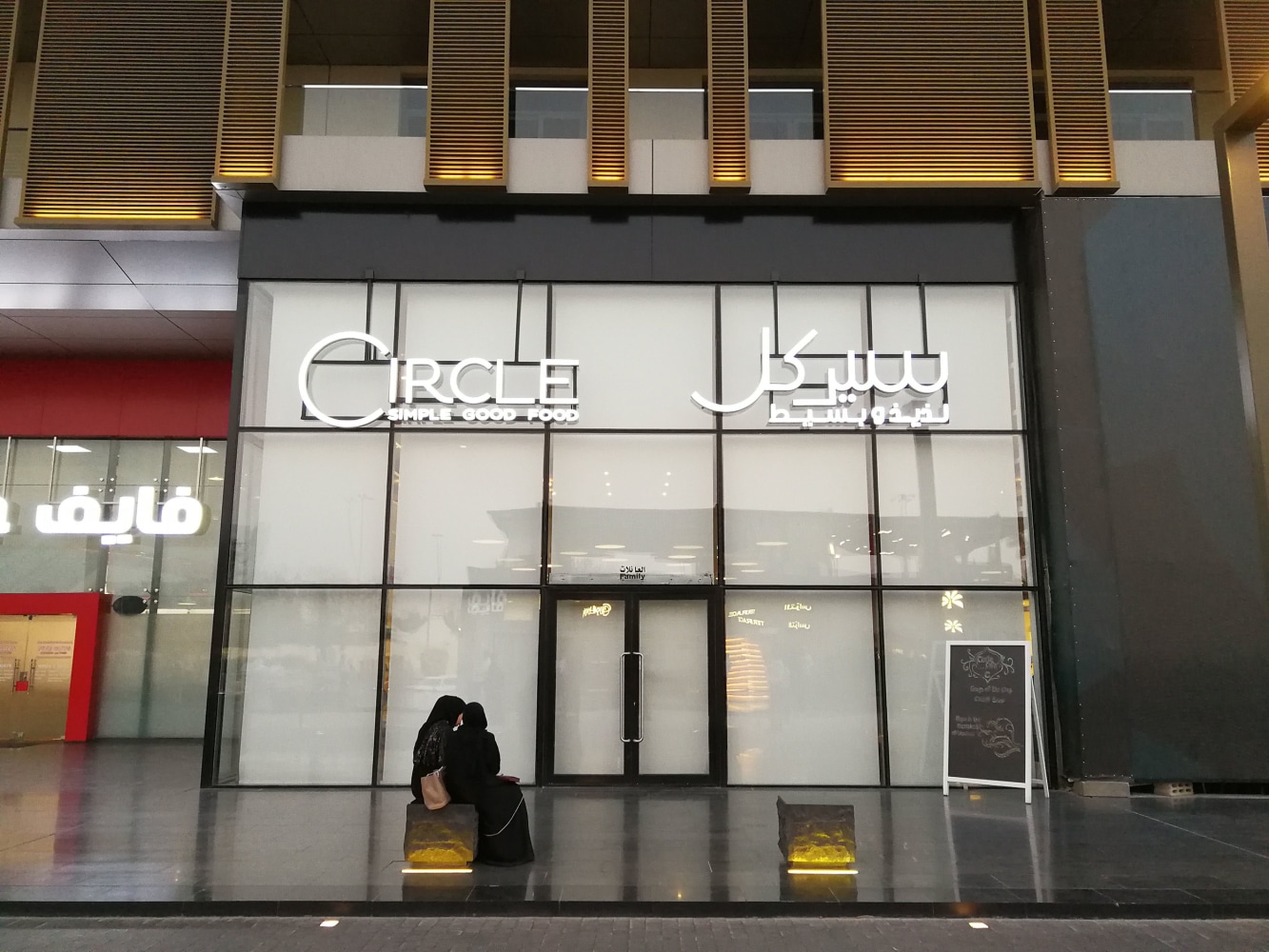
Salman, who displaced his older cousin Prince Mohammed bin Nayef as crown prince in June, is on a quest to show the world that Saudi Arabia is not a backward nation hamstrung by a backward beliefs.
Salman — who also runs the kingdom's defense and oil strategies — has spearheaded real change, limiting the powers of the kingdom's religious police, who once were able to walk the streets and impose gender segregation and ensure women were covered from head-to-toe in public.
The changes have been sweeping and unthinkable just a few years ago — young people mix on streets and cafes where music is played and a few women uncover their hair and wear colorful robes.
The crown prince has also lifted a ban on women driving, approved concerts and is expected to reopen movie theaters that have been closed for decades.
Salman’s big plans come with big risks, however, said Rogan, the author of “The Arabs: A History.”
“Don’t forget, you can pronounce that you are going to make big investments, jobs and Saudization, biggest-ever flotations and IPOs and all the stuff that has been promised,” he said. “If you don’t make it happen, or if you launch things that appear ill-judged or don’t deliver, you are raising expectations and, boy, dashed hopes are a big machine for revolutions.”
Big gamble
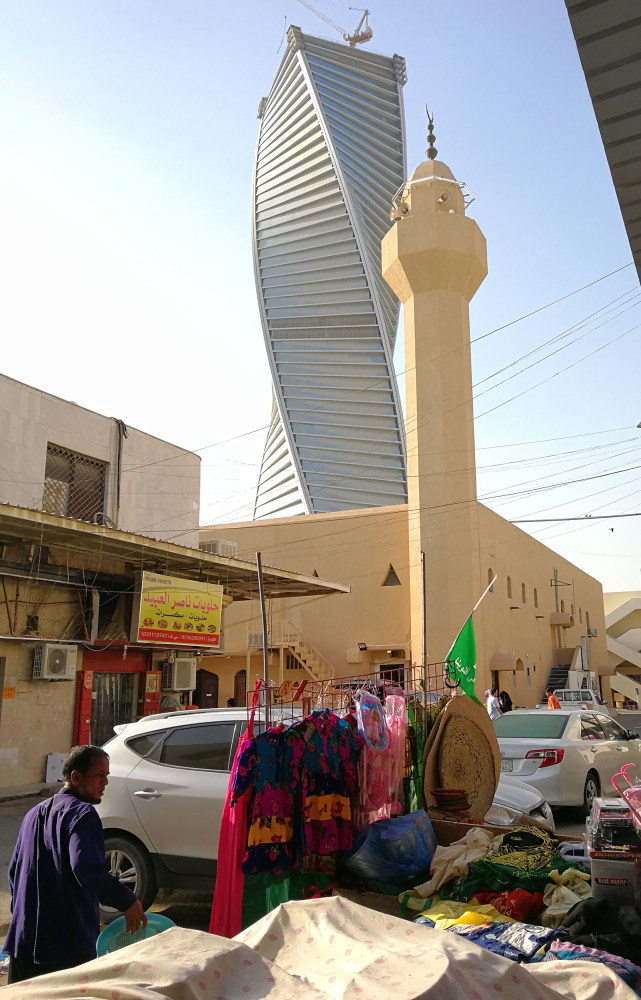
Nada Mohammad is one of those whose expectations have risen under Salman. The 23-year-old copywriter praised the young prince driving the social and economic reforms, saying the changes were long overdue.
“People are worried about the consequences,” she said on a recent evening as she sat with her sister Mada in Riyadh’s Food Truck Square — one of a number of Western-style eateries that have sprung up in the capital. “The majority of the people are with him, but our culture is conservative.”
Salman's gamble is that the opinions of the young people he’s courting with social and economic changes outweigh the concerns of religious conservatives who have long supported the ruling Al Saud family.
But state-sanctioned conservatives have seen their power weaken.
“When you want to make changes, especially political and constitutional, you always face resistance. So you want to take it step by step,” said Khalid Al-Dakhil, a Saudi author, historian and columnist for pan-Arab newspaper, Al-Hayat.
In September, some 30 clerics, intellectuals and activists were locked up. This "crackdown on dissent," as it was described by human rights defenders, was followed by this weekend's detentions. Many of the princes taken into custody by the Salman-led anticorruption body are reportedly are being held in Riyadh's luxury Ritz-Carlton hotel.
Among those detained was Prince Alwaleed bin Talal, one of the Middle East's richest people, with investments in Twitter, Apple, Citigroup, and the Four Seasons, Fairmont and Movenpick hotel chains.
Kristian Coates Ulrichsen, a research fellow at the James A. Baker III Institute for Public Policy at Rice University, suggested the arrests were designed to further smooth Salman's eventual succession to the throne.
"As a leader who is set to remain in power for decades, Mohammed bin Salman is remaking the kingdom in his own image and signaling a potentially significant move away from the consensual balancing of competing interests that characterized Saudi rule in the past," Ulrichsen said.
Within the country, rights defenders charge that the state is above the law and that dozens of activists are serving long prison sentences for advocating change. Women and minorities are "systematically" discriminated against, according to Human Rights Watch.
As Salman woos the world, he is also having to explain Saudi Arabia's continued support for the two-and-a-half-year involvement in the war in neighboring Yemen — a conflict that has created what the U.N. calls the worst humanitarian crisis in the world.
But Al-Dakhil, the author and historian, said Salman the reformer was clearly different from those who preceded him.
"Mohammed Bin Salman is a new leader with new vision and new outlook," Al-Dakhil added. "The question is, how far is he willing to go on this path?”
https://www.nbcnews.com/news/world/prince-mohammed-bin-salman-aims-rebrand-saudi-arabia-n817201
Last edited:







